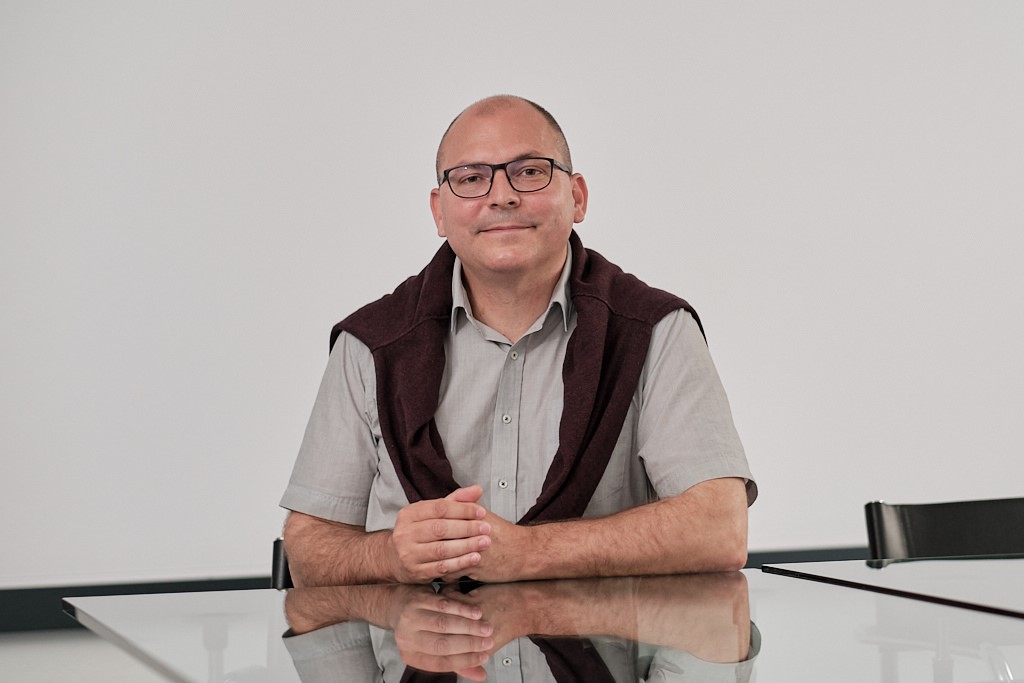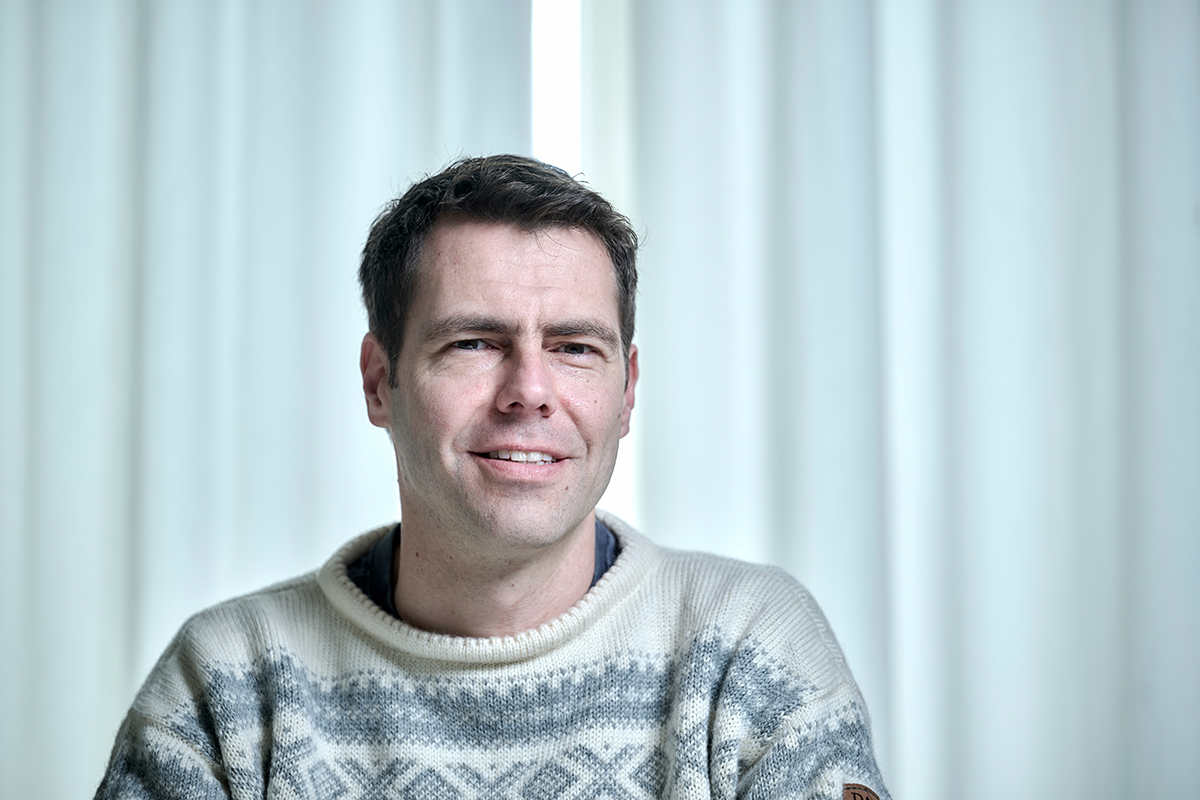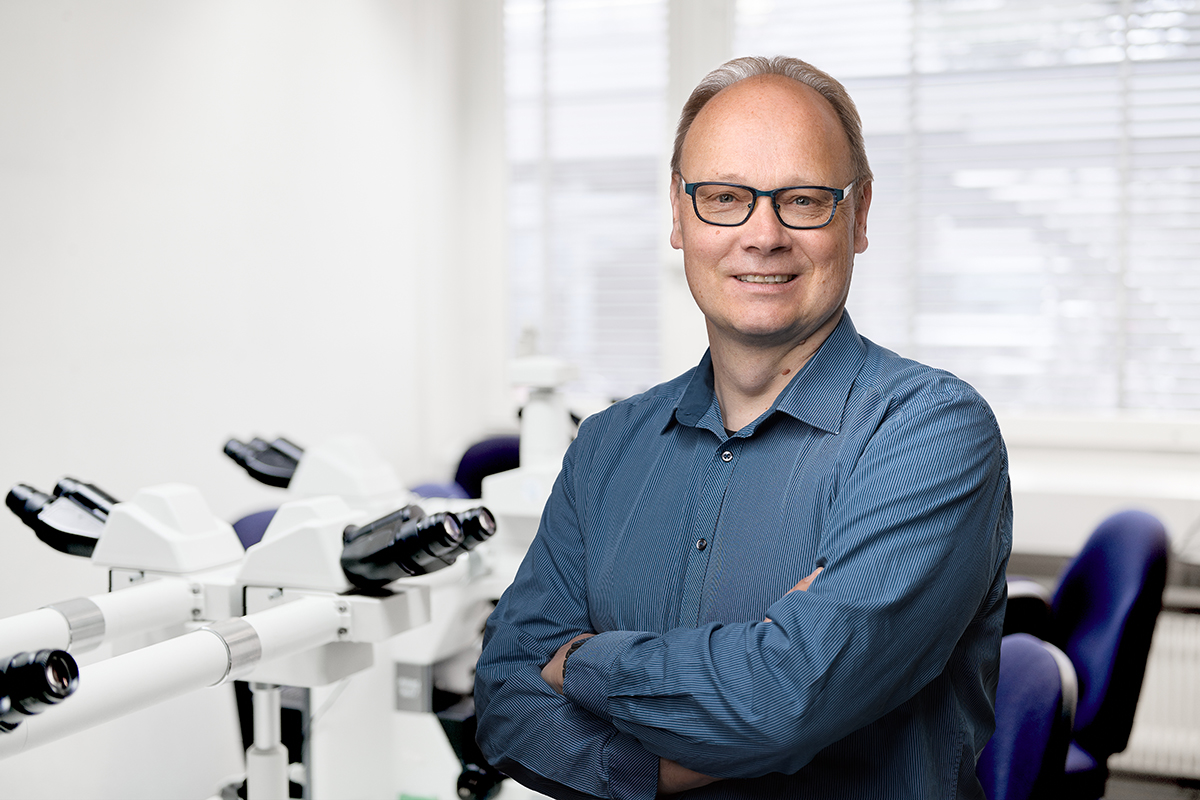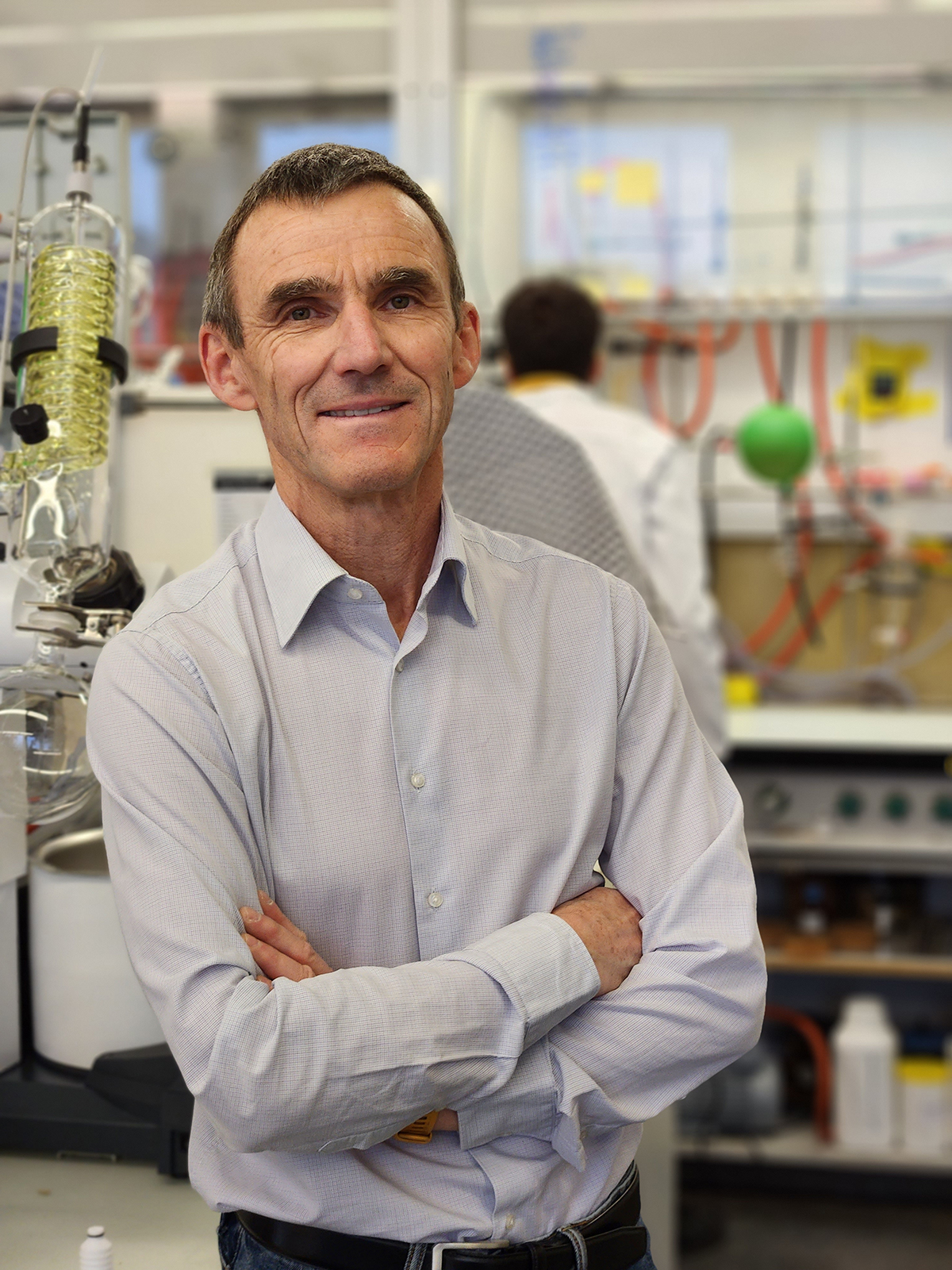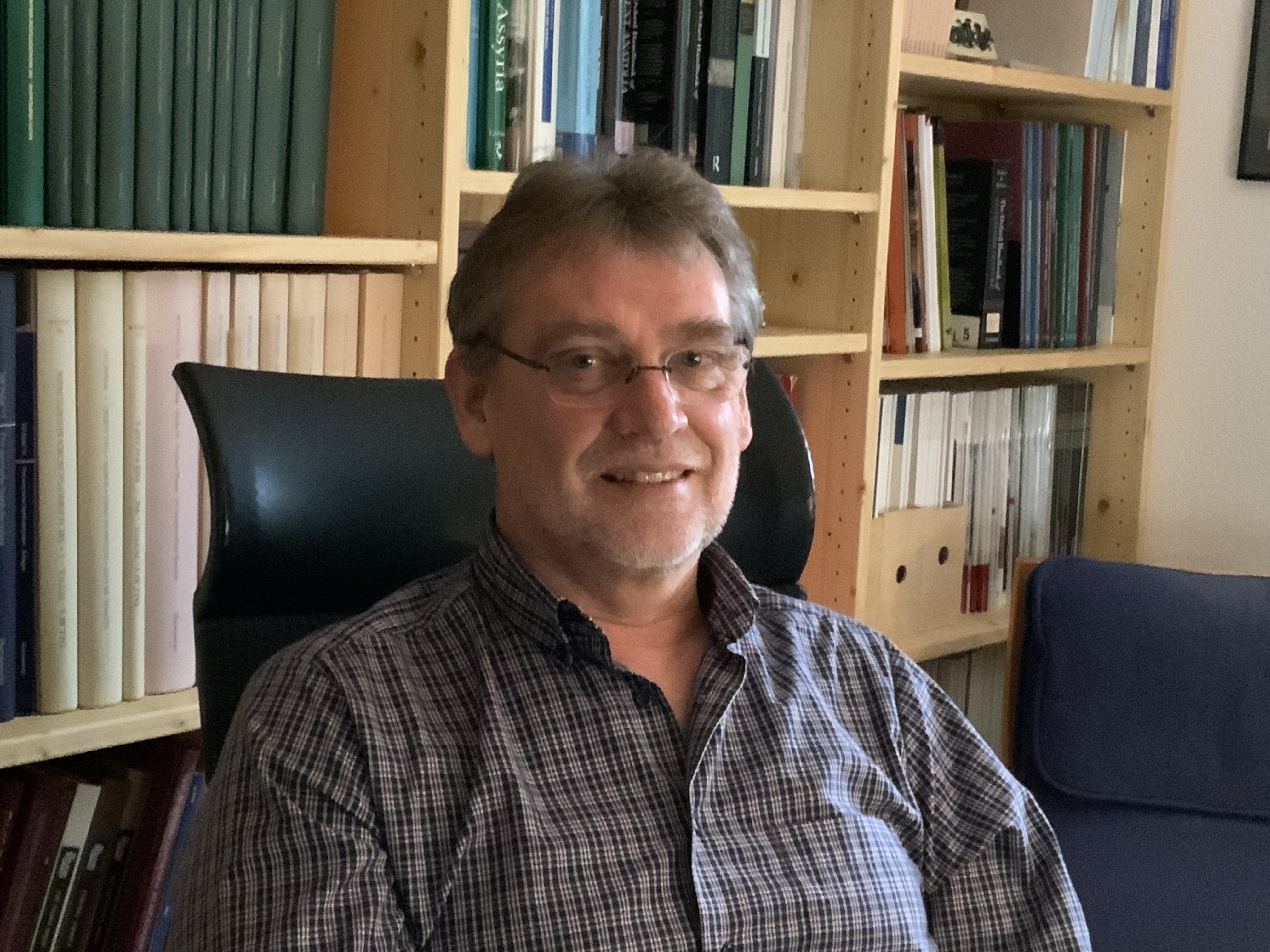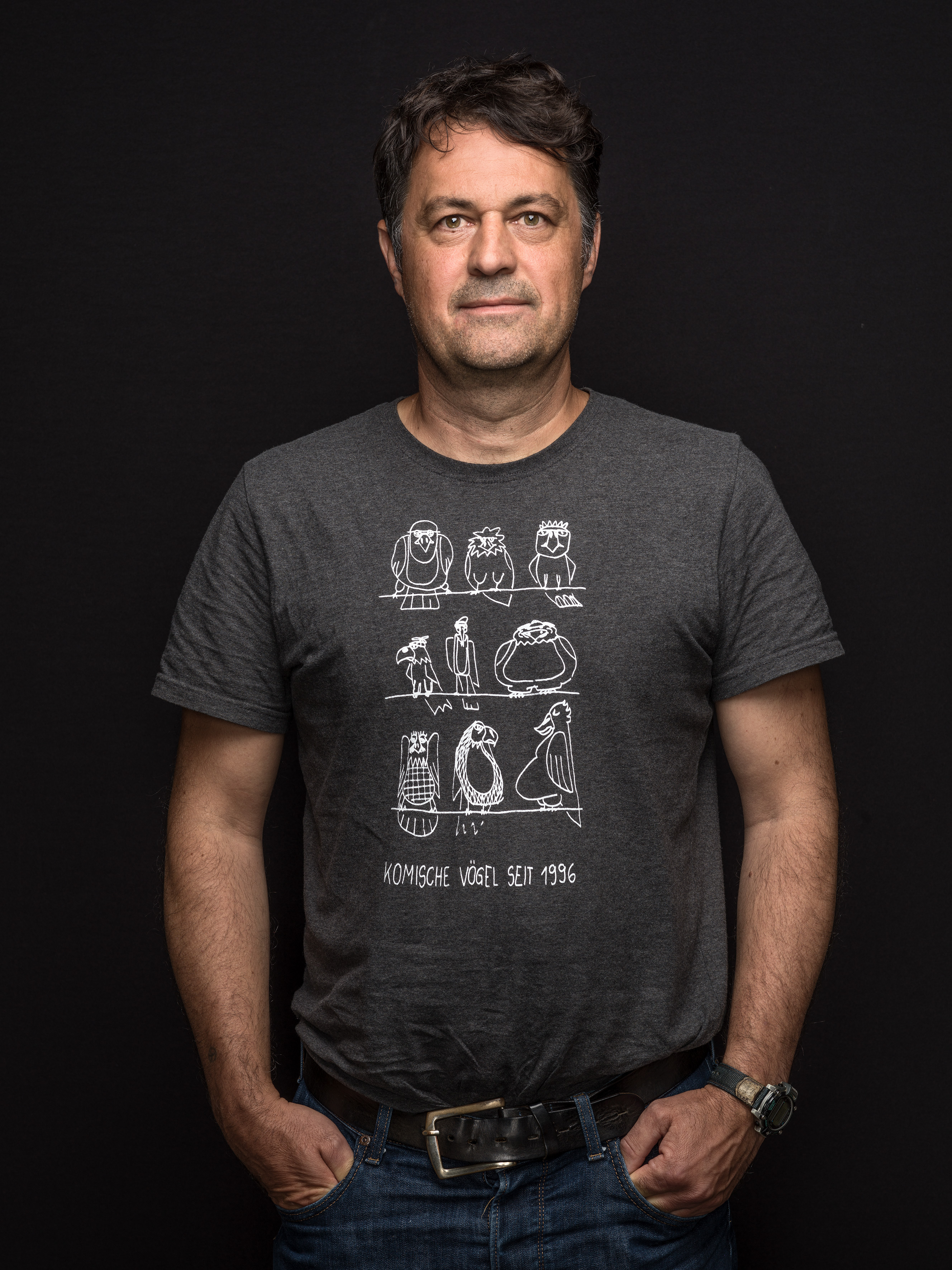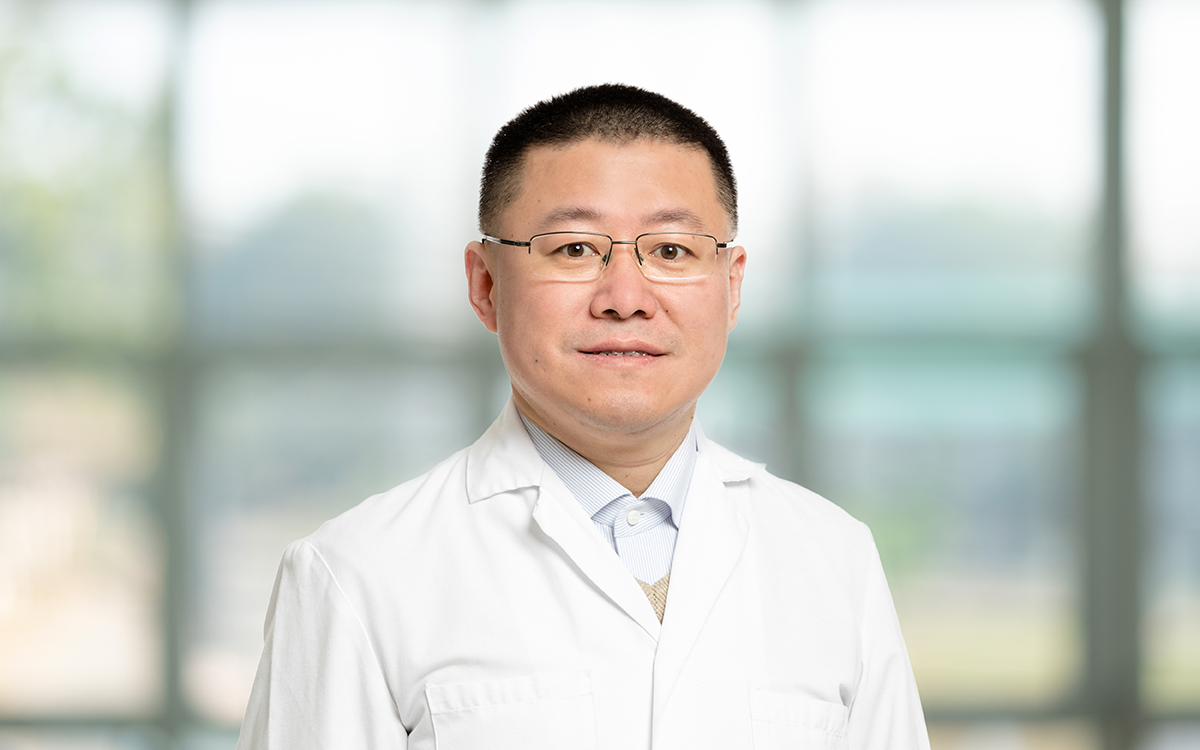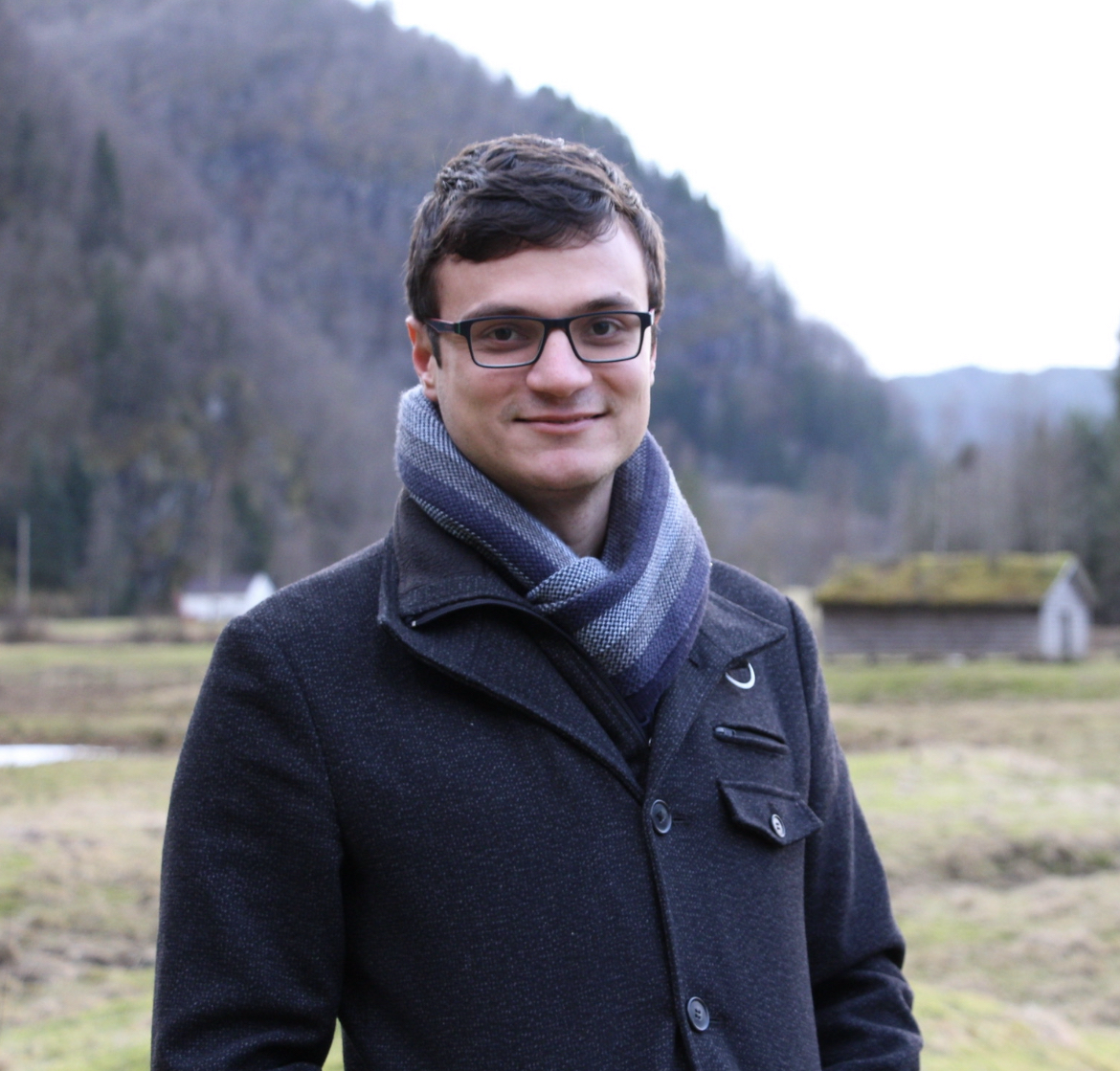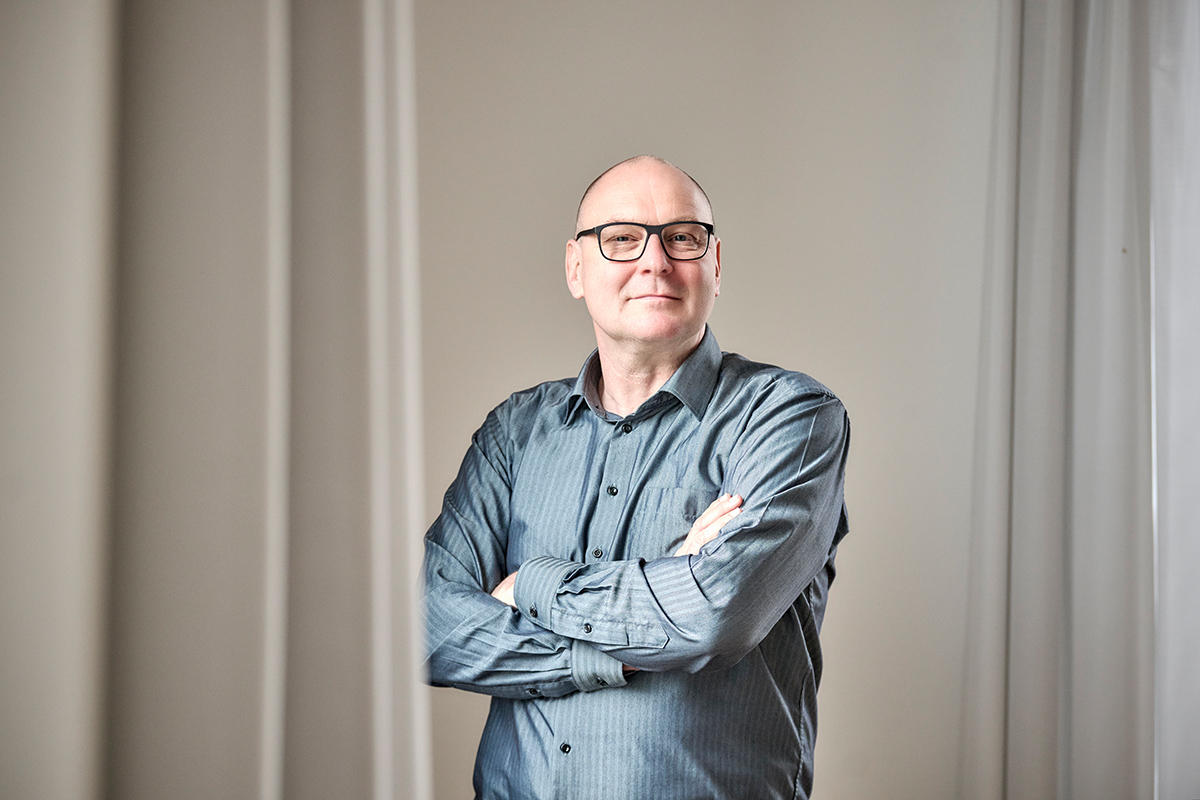Sinergia funding for six interdisciplinary projects at Bern
Ten researchers from the University of Bern have been awarded Sinergia funding from the Swiss National Science Foundation (SNSF) for their six research projects. The projects are being supported by the SNSF with funds totaling approximately CHF 6.7 million over a period of four years.
The Sinergia program of the Swiss National Science Foundation (SNSF) supports the joint projects of two to four research groups that conduct interdisciplinary research with the prospect of obtaining groundbreaking findings. As the name suggests, the aim is to harness synergies between differing areas of research: the expertise and knowledge of the applicants should complement each other. Their projects should address important scientific challenges and take a novel approach by questioning or going beyond existing models, doctrines or methods. The projects should also open up new research directions and have a high impact potential in the academic field or beyond.
In the most recent SNSF call for papers, 113 projects were assessed in a competitive procedure and 26 were chosen. Ten researchers from the University of Bern are responsible for six of these projects, some as co-directors. The budget per project is approximately CHF 1 million. Hugues Abriel, Vice-Rector for Research and Innovation at the University of Bern, is delighted with the success: “The interdisciplinary research at the University of Bern is very topical and excellently networked. The six Sinergia projects being undertaken by the researchers at Bern also stand out through their potential to deliver major benefits for society.”
Detailed descriptions of the projects and short biographies:
The Food-Medicine Continuum in Vervet Monkeys: Investigations on the Interplay between Diet Quality, Stress Coping, and the Endocannabinoid SystemProject leaders:
Project descpription:Nutrition is a key factor in life-history theory, but the relationship between diet quality and diet choice across different species remains unclear. Zoopharmacognosy investigates whether animals possess an innate ability to identify and utilize beneficial plant compounds. The overreaching goal oft he project is to understand how changing dietary patterns impact the gut-brain axis in vervet monkeys and how this relates to their stress-coping abilities and learning behaviors. The strong preliminary data suggest that plant-derived secondary metabolites ingested by vervets may enhance fitness by modulating the endocannabinoid system (ECS). The ECS is an evolutionary conserved lipid network in mammals that regulates synaptic transmission, inflammation, metabolism, and food intake, as well as stress behavior, learning and memory. By levering interdisciplinary approaches from behavioral ecology, nutritional biochemistry, phytochemistry, microbiology and biomedicine, this project aims to better understand the complex interplay between dietary factors, gut microbiota, and the ECS, and how these factors influence health and behavior. It also holds significant promise for advancing knowledge of primate nutrition and ecology, with potential implications for human health. About Jürg GertschJürg Gertsch is professor for Biochemistry and Pharmaceutical Biology. Currently, he serves as the Deputy and Co-Director of the Institute of Biochemistry and Molecular Medicine (IBMM). His research group focuses on the exploration of the endocannabinoid system and cannabinoid pharmacology, with a particular emphasis on drug discovery. His academic pursuits extend into interdisciplinary research encompassing biochemical pharmacology and biomedical analytics. He is a Co-Founder of Synendos Therapeutics, a spin-off from his laboratory dedicated to the development of innovative neuropharmacological agents. In recognition of his outstanding contributions to plant natural product pharmacology, Professor Gertsch has been honored with several awards, including the A. Vogel Award (2003), the Dr. Willmar Schwabe Award (2010), and the Sebastian-Kneipp-Preis (2014). Contact:Prof. Dr. Jürg Gertsch, Institute of Biochemistry and Molecular Medicine (IBMM), University of Bern |
Designing Inhibitors Against Clostridial Pore-Forming ToxinsProject leaders:
Project description:This project encompasses basic research into the fight against pore-forming toxins. These toxins are able to form pores in the cell membrane, which leads to cell death. They are largely produced by pathogenic bacteria, such as Clostridium perfringens, and serve to increase the supply of nutrients to these bacteria. A team of veterinary pathologists, computational chemists and structural biologists is developing peptide inhibitors against these toxins. With the use of advanced computer modelling and in-depth knowledge of toxin structures, the project aims to lay the foundations for new therapeutic strategies to find effective solutions against virulence factors and to identify innovative treatment methods for bacterial infections. About Benoît ZuberBenoît Zuber is Associate Professor and Co-Director of the Institute of Anatomy at the University of Bern, as well as Head of the Department of Microscopic Anatomy and Structural Biology. He obtained his doctorate in structural biology at the University of Lausanne and completed a postdoctoral stay in Cambridge. His specialist field is structural cell biology with a particular focus on cryo-electron microscopy techniques. Benoît is also scientific director of the Bern branch of the Dubochet Center for Imaging and also a lecturer in the field of histology. About Horst PosthausHorst Posthaus is Associate Professor of Veterinary Pathology and Head of both the Pathology Residency Training Program and the Section Department of the Institute of Animal Pathology at the University of Bern, where he has established the “Host-Pathogen Interaction” research group. The research work of Horst Posthaus focuses on the interactions between pore-forming bacterial toxins with target cells in the animal and human body. About Jean-Louis ReymondJean-Louis Reymond is Professor of Chemistry at the Department of Chemistry, Biochemistry and Pharmaceutical Sciences at the University of Bern. Jean-Louis develops new active ingredients by combining chemo-informatics and artificial intelligence with organic synthesis and biological assays. These are used in the field of small molecule inhibitors of membrane transporters and ion channels, as well as antimicrobial peptides against multi-resistant bacteria (ERC Advanced Grant SPACE4AMPS) and transfection reagents. Contact:Prof. Dr. Benoît Zuber, Institute of Anatomy, University of Bern Prof. Dr. Horst Posthaus, Institute of Animal Pathology, University of Bern Prof. Dr. Jean-Louis Reymond, Department of Chemistry, Biochemistry and Pharmaceutical Sciences, University of Bern |
Hydrography of Mesopotamia. Rivers and Channels in Babylonia from the 4th to the 1st Millennium BCEProject leaders:
Project description:Mesopotamia owed its wealth to its fertile soils, which it was only possible to harness with the support of sophisticated irrigation systems. As such, rivers and canals whose courses changed significantly several times over the millennia played a key role. About Mirko NovákMirko Novák has been Professor for Near Eastern Archaeology at the Institute of Archaeological Sciences, University of Bern since 2011. He has directed archaeological digs in Sirkeli Höyük (Turkey) and is co-director of the digs in Umma (Iraq) and Togolok (Turkmenistan). In the past, he has carried out work in Syria, most recently in Tall Halaf. His research focuses chronology, urbanism and architectural development, modes of cultural exchange and the links between migration and ethnogenesis. About Andreas ZischgAndreas Zischg is Professor of Human Environment Systems Modelling at the Institute of Geography and co-director of the MobiliarLab for Natural Risks at the Oeschger Center for Climate Change Research at the University of Bern. In his research, Andreas Zischg studies the subjects of flood risk and climate impact and the geographic information system GIS. Contact:Prof. Dr. Mirko Novák, Institute of Archaeological Sciences, University of Bern Prof. Dr. Andreas Zischg, Institute of Geography and MobiliarLab for Natural Risks, Oeschger Centre for Climate Change Research, University of Bern |
Intelligent 4D ultra-high-sensitive PET Imaging for early detection of pancreatic ductal adenocarcinomaProject leaders:
Project description:The project deals with the development of early detection methods for pancreatic cancer using positron emission tomography. For this purpose, appropriate radiotracers are to be used which target specific characteristics of tumor cells. Combined with one of the world's first highly sensitive whole-body PET/CT scanners as well as preclinical development including simulation analyses and animal models, the ultimate aim is to close the gap to humans with the help of artificial intelligence methods. The early detection methods developed as part of the project can ultimately be used for many tumor entities and also enable the use of positron emission tomography for screening high-risk groups. About Axel RomingerAxel Rominger is Professor of Nuclear Medicine and Clinic Director of the University Clinic for Nuclear Medicine at Inselspital Bern. His scientific focus is on positron emission tomography and its constant methodological development. This takes place with interdisciplinary teams that are anchored in nuclear medicine, such as radiopharmacy for tracer development, biotechnological development and the artificial intelligence methods group. There is close cooperation with research groups in the USA, China and South Korea. About Kuangyu ShiProf. Kuangyu Shi is the Chief Medical Physicist and Head of the Lab for Artificial Intelligence and Translational Theranostics at the Department of Nuclear Medicine, University of Bern, Switzerland. His research is centered on advancing artificial intelligence and computational modeling techniques for nuclear medicine imaging and therapy, aiming to link the outcomes with underlying pathophysiological processes. Additionally, he is dedicated to developing both in vivo and ex vivo experimental methods, pushing the boundaries of microscopic nuclear imaging. Contact:Prof. Dr. ing. Kuangyu Shi, Department of Nuclear Medicine, Inselspital, University Hospital Bern Prof. Dr. Axel Rominger, Department of Nuclear Medicine, Inselspital, University Hospital Bern |
Understanding the role of immuno-metabolic imprinting for sustainable weight lossProject leaders:
Project descriptionOverweight and obesity are major risk factors for a number of chronic diseases, including cardiovascular diseases and type 2 diabetes mellitus. Although several treatment options exist, long-term success is unsatisfactory, as weight regain occurs very frequently in individuals trying to lose weight by lifestyle or pharmacotherapy interventions. The results of this project will deliver a clear mechanistic explanation of one of the biggest conundrums in the clinical management of obesity which is the weight regain after successful weight loss of formerly obese individuals, a phenomenon commonly known as the "yo-yo effect" of recurrent obesity. The project aims to understand how inappropriate interplay between the intestinal microbiota, immune and endocrine systems exert long-lasting consequences on weight loss post-obesity. This goal will be achieved by multidisciplinary approaches and a synergistic investigation with expertise in immunology, endocrinology, microbiome and metabolism. About Ziad Al NabhaniZiad Al Nabhani has been Assistant Professor at the Department for Visceral Surgery and Medicine at Inselspital Bern and the Department for BioMedical Research (DBMR) at the University of Bern since 2021. He obtained various fellowships, young investigator awards and research grants, including the Swiss Immunology Early Career Award, the Pasteur Institute Young Scientist Award, the American Innovator Award from the Kenneth Rainin Foundation as well as a prestigious European Research Council (ERC) Starting Grant. His research investigates the relationship between the immune system and gut microbiota and how its disruption leads to chronic inflammatory diseases and metabolic-related disorders. Contact:Prof. Dr. Ziad Al Nabhani, Department for BioMedical Research (DBMR), University of Bern |
Holocene hydroclimate, drought dynamics and environmental change recorded in multiple archives from SW Asia (MITRA)Project leaders:
Project description:The Sinergia project MITRA is an interdisciplinary project to research the water cycles in the Mesopotamia region (Euphrates and Tigris) over the past 4 millennia. Mesopotamia is considered a key region in the development of mankind, being associated with the rise of agriculture, the emergence of advanced, complex societies and the development of the first cities, nation states and empires. This research project investigates past climatic conditions, in particular the water cycle using both proxy archives and climate models. In collaboration with the University of Basel and the Mediterranean Institute of Marine and Terrestrial Biodiversity and Ecology (IMBE), Aix-Marseille University, extreme climate variations over the last 4000 years will be investigated. Questions such as how long droughts had been lasted and the associated processes causing them will be answered. The aim of the project is to generate a basis of understanding which will allow other disciplines – such as archaeology – to study the impact of the climate on early complex societies. About Christoph RaibleChristoph Raible is Associate Professor of Atmospheric Dynamics at the University of Bern whose specialist field is climate variability in the past and the future. His research focuses on the numerical simulation of climate variations with global and regional Earth system models. Climate modeling provides insights into the processes that can lead to climate variability and extreme weather events such as storms or droughts. This understanding of processes provides the basis for more reliable prediction of future change of the climate system. Contact:Prof. Christoph Raible, Climate and Environmental Physics (KUP), Physics Institute, and Oeschger Center for Climate Change Research, University of Bern |
2024/03/01

